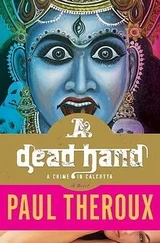ranks. Poor Chazel! he was not rich. The head of the establishment had
taken him as a foundationer, with a view, to making a show-pupil of
him--a machine for winning prizes in competitions. How many times had
Armand paid for him at the little wicket, when the porter sold to the
pupils sweetmeats, fragments of iced chestnuts, cakes, and Parisian
creams--tablets of chocolate having a thick and oversweet liquid inside!
They had gone through all their classes together from the fourth up, and
had together passed through the evil days of the Commune, when, on
returning both of them from the country, after the siege, they found
themselves blockaded in Paris. Alfred had afterwards entered the École
Polytechnique. And when he came on Wednesdays and Sundays to visit his
old schoolfellow, who had already crossed the Seine and begun to lead
the life of a rich and idle young man, how ludicrous he was in his
military dress, embarrassed by his sword, not knowing how to set his hat
upon his head, and invariably scarred with clumsy razor-cuts!
While Alfred was at the School of Bridges, Armand was travelling. He had
gone round the world in the society of an amateur artist. On his return
he found that his friend was no longer at Paris. The letters passing
between them became rare. Could they have told why? Armand perhaps
might. There was only one point left in common between Alfred's life and
his own. Alfred had married Mademoiselle de Vaivre. They had made a trip
to Paris, and Armand well remembered how he had been deliciously
surprised by Helen's distinguished demeanour, when he had expected to
find her awkward, pretentious, and a fright. But at this period he was
taken up with another woman, little Aline, a mistress of his for whom he
had cherished the only genuine passion of which he was capable--painful
jealousy blended with delirium of the senses.
Later on, some one had spoken to him of Helen Chazel, and told him ugly
stories about her. And who was it that had done so? Another
school-fellow--big Lucien Rieume, who had been educated at the Vanaboste
establishment like Alfred and himself--during one of these
_tête-à-tête_ luncheons when an opening of the heart usually
accompanies that of the oysters between two college companions; and
Lucien--cordial, indiscreet, intolerable--had talked a great deal,
pouring out pell-mell whatever he knew concerning former friends. Armand
could again hear him chuckle, leaning forward somewhat with kindled eye
and humid lip:
"Poor Chazel, he hadn't a head worth a fig! It seems that his wife is
tricking him. I heard the gentleman's name: Marades, Tarades--just wait
a moment--yes, De Varades, an artillery officer. It was the talk of
Bourges. He was never out of the house."
It was an unfortunate trait in Armand's character that he was unable to
withstand the tempting of mistrust. When evil was asserted to him, he
preserved an indelible impression of it. He did not altogether believe
in it, and yet he believed in it sufficiently for a suspicion, and a
busy suspicion, to be planted within him. When the Chazels had come to
settle in Paris, ten months previously, and Armand had begun to interest
himself in Helen, the scruples of an old friendship might perhaps have
been stronger than his freak of curiosity if big Rieume's words had not
risen before his recollection.
"Really," he had said to himself, "it would be too foolish,"--a criminal
phrase which serves men for the justification of many a dastardly
action. Helen had not been slow in displaying towards him a kind of
passion which he had attributed to the natural exaltation of a
provincial. "I am the first Parisian who has paid her attentions," he
had said again to himself, and as she possessed charming gracefulness of
gesture, so sweet an expression of countenance and such an air of
complete refinement and nobility about her entire personality, he had
taken a pleasure in completing her education in elegance, thinking to
himself that she would be a delightful mistress.
But for many days she had refused really to become his mistress, and her
resistance had made him obstinate. He had become bent upon overcoming
her, recollecting the officer and telling himself that the officer had
not been the only one. A few skilful conversations with Alfred had
taught him that at one time Varades had really been a constant guest at
the house; was he not the same year's student at the École
Polytechnique as Alfred himself? Armand had lost his doubts, and in
Helen's refusals to be his, he had seen nothing but coquetry. Now, in
this respect like all men who hold the strange ethics of seducers,
Querne considered coquetry in a women a justification for the worst
behaviour. At last the long siege was about to issue in the coveted
result. Madame Chazel had granted him an appointment for the following
day. Twenty-four hours more and he would have a new mistress, as
desirable and as pretty as those whose memory was the most flattering to
the pride of his recollection. Why then did he, instead of being happy,
feel so deeply melancholy. Was it remorse for the treason to his friend?
His friend? Was Alfred really his friend? Yes, that was understood
between themselves, as well as in the eyes of others. But a friend is a
man who knows you and whom you know, to whom you show your heart and who
shows you his. Would he ever bring the tale of one of his hopes, his
joys, his sadnesses, to the calculating machine that bore the name of
Chazel? Had the latter ever confided a secret to him? So much the
better, too, for the ideas of this worthy schoolboy who seemed to look
upon life as the prolongation of a college task, must be silly enough.
It was their college life that continued to link them together, and the
recollections of their childhood. Their childhood? Turning down the Rue
Royale and arriving at the Champs Élysées, Armand suddenly recalled
the ranks of Vanaboste's school, on Thursdays, as they walked three and
three under the superintendence of a poor wretch of an usher who strove
to hide himself among the groups of people, so as to seem a passer-by
like the rest and not a watch-dog charged with the duty of looking after
a flock of schoolboys.
And what a flock it was! The majority had pale complexions, hollow eyes,
an enervated exhaustion of the whole being that spoke of secret
excesses. How much ignominy and baseness was there in that community,
the eldest in which were nineteen years of age and the youngest eight!
Within the walls of their prison, as within the walls of the great
Lycée to which they repaired twice a day, nothing was thought of but
the infamous amours existing between the elder boys and their juniors.
Of these unnatural loves, some were partly sensual, and had for their
theatre all the deserted corners in the house, from the dormitories to
the infirmary. And of the French youth confined within similar colleges,
how many were participators in this lewdness, while the rest defiled
their imaginations, although they repelled it! Among these college boys
there were also elevated and chaste connexions. The perusal of a certain
eclogue of Virgil's, a dialogue of Plato's, and a few of Shakespeare's
sonnets had excited the more literary of them, and Alfred Chazel, being
then in the third class, had one day received a piece of poetry written
by a sixth-form boy, beginning with the following astonishing line,
Читать дальше












